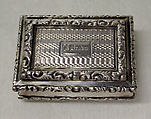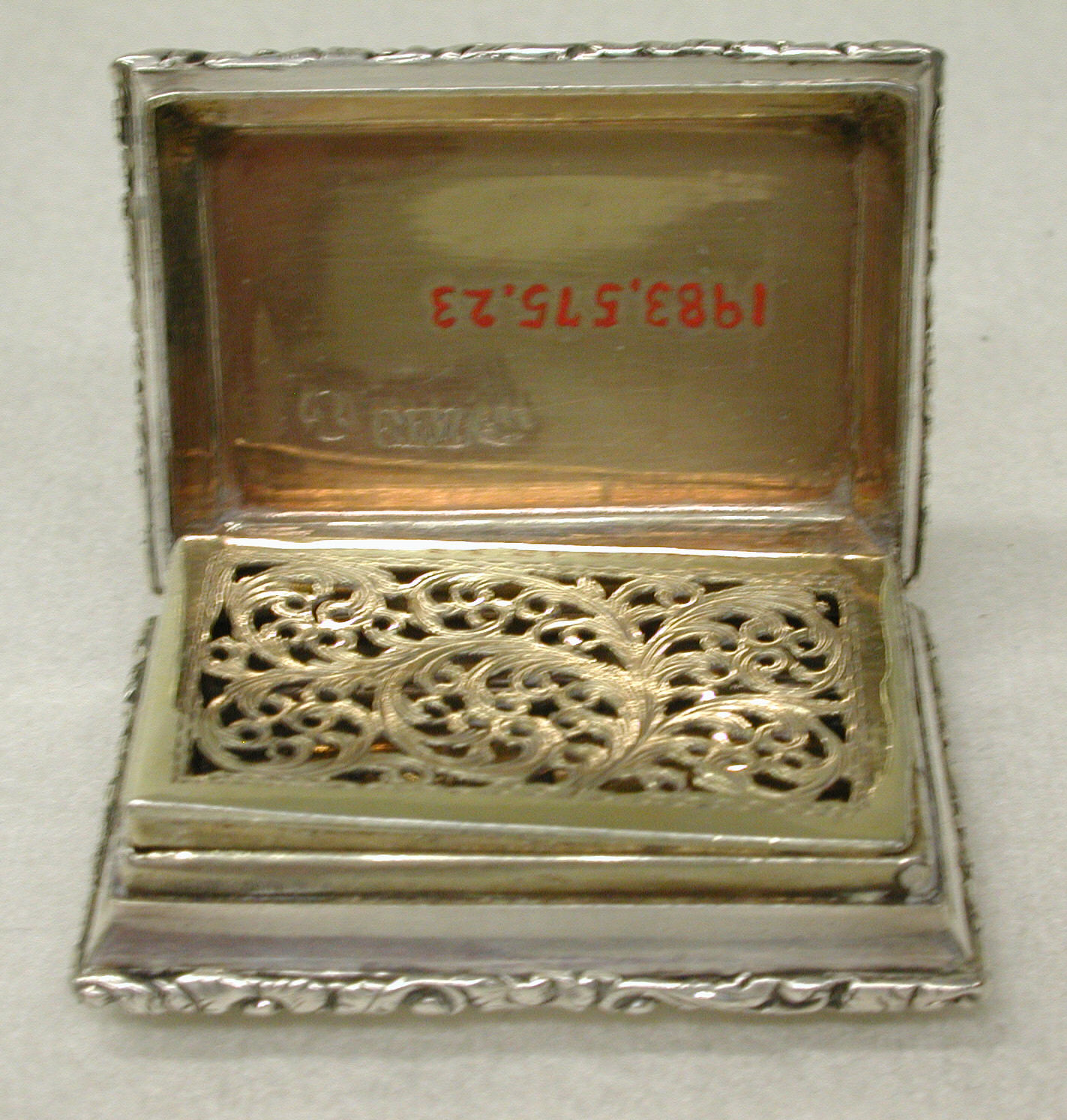Vinaigrette
Nathaniel Mills British
Not on view
Nathaniel Mills, considered one of the finest boxmakers of Birmingham and certainly the most prolific, used flower, foliate and scrollwork surrounds for card cases, boxes (14.58.210) and vinaigrettes as seen here and 1983.575.40.
Here, the base and cover are decorated with basket-weave engine-turning; the cover has a plate engraved with a name. The hinged silver-gilt grille has pierced and engraved floral scrolls.
After Mills died in 1843, the family enterprise was successfully carried on by his sons Nathaniel ll, William and Thomas. The company of Nathaniel Mills & Sons was especially well-known for the "castle-top" boxes which depict British landmarks and were produced for travelers as souvenirs during the early days of the railways.
A vinaigrette was intended to hold a tiny sponge dipped in aromatic vinegar. Its interior Is gilded to protect the silver from oxidation caused by the acidity of the vinegar. A hinged and decoratively pierced inner lid or grille kept the sponge in place while its perforations allowed the odor to waft through. A whiff of the vinegar might revive someone from a fainting spell. Such vinaigrettes were worn around the neck, on a chatelaine suspended from the waist, or carried in a pocket.
This image cannot be enlarged, viewed at full screen, or downloaded.
This artwork is meant to be viewed from right to left. Scroll left to view more.




